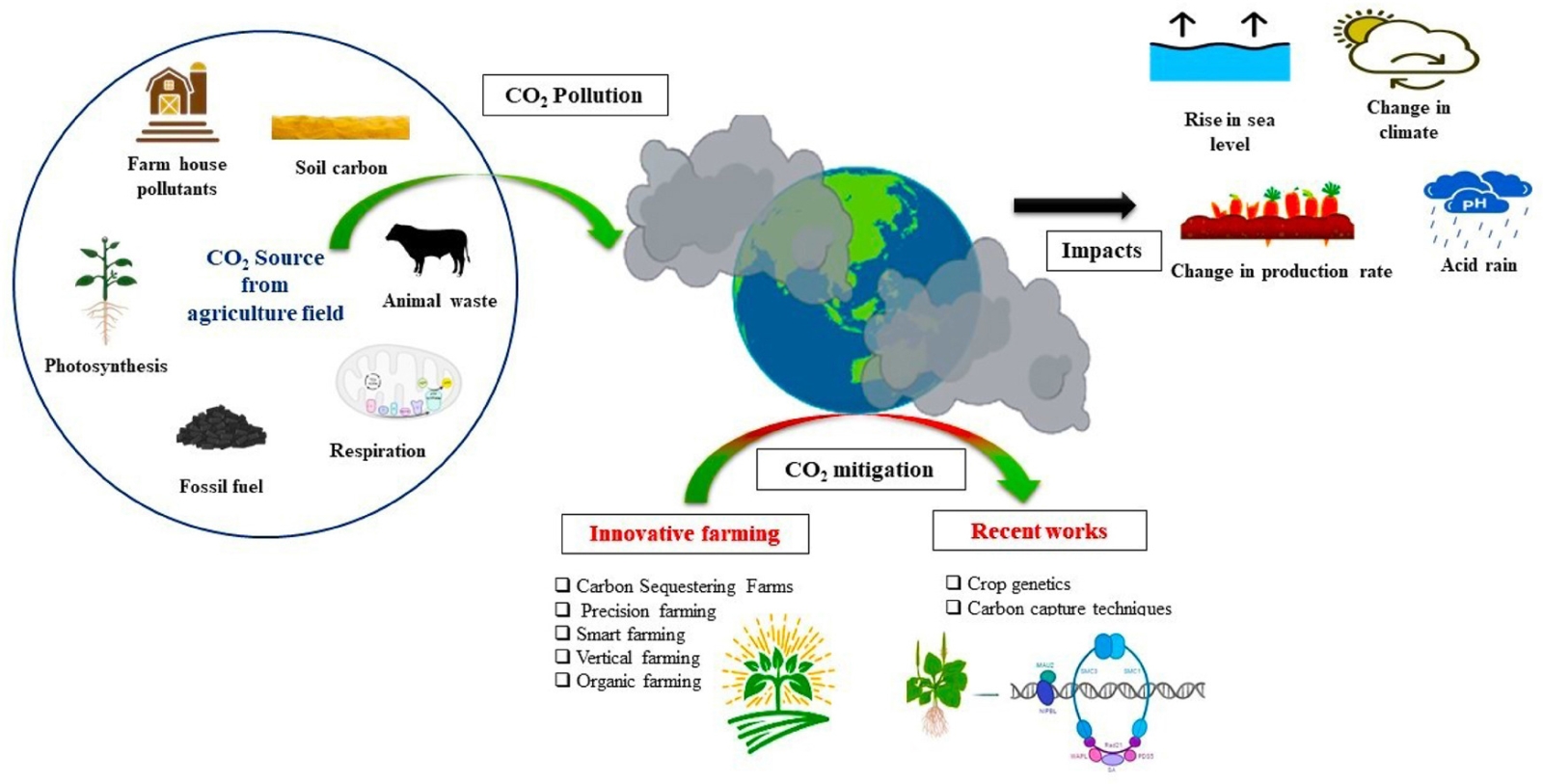May 1, 2024 | Trends in Food Science & Technology | Source |
Introduction: Agriculture significantly contributes to greenhouse gas emissions, affecting climate change and global food security. Researchers from Saveetha School of Engineering in India explore how techniques like precision farming, vertical farming, organic farming, and carbon-sequestering farms show promise in lowering emissions and mitigating climate change.
Key findings: Carbon-sequestering farms focus on enhancing soil carbon through practices like crop rotation and cover crops, which can improve soil health and reduce greenhouse gas emissions.
- Precision farming uses advanced technologies such as GPS, sensors, and AI to optimize resource use, reduce waste, and increase efficiency. This method allows for precise application of water, fertilizers, and pesticides, minimizing environmental impact.
- Vertical farming involves growing crops in vertically stacked layers in controlled environments, reducing land use and water consumption. This method can also reduce transportation emissions by bringing food production closer to urban areas.
- Organic farming emphasizes natural fertilizers and traditional practices to improve soil health and biodiversity, potentially increasing resilience to climate change.
- Recent advances in crop genetics aim to develop climate-resilient crops that can withstand extreme weather conditions, drought, and soil salinity. Additionally, carbon capture and utilization (CCU) in agriculture involve integrating methods to capture CO2 and use it in agricultural processes, further reducing emissions.
Graphical Abstract´╝Ü






